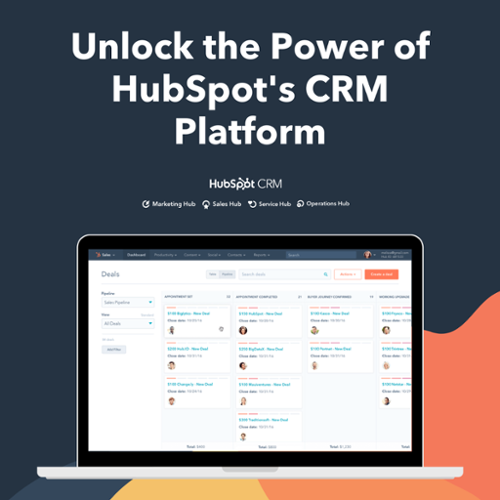Prepare for a showdown of epic proportions as we pit two service solutions against each other: HubSpot and Intercom. Both platforms boast powerful tools for customer engagement, but which one will reign supreme?
In this blog, we'll delve into the battle between HubSpot and Intercom, exploring their unique offerings, standout features, and the impact they can have on your customer relationships. From lead generation to personalized messaging, we'll dissect the capabilities of each platform to help you make an informed decision.
Ready to witness this epic showdown? Let's dive in and discover the answer!
Decoding Customer Engagement: HubSpot vs Intercom
Whether you're a business owner, a marketer, or a sales professional, this blog will be your guide to choosing the perfect platform for enhancing customer engagement. Brace yourself for an epic showdown as we compare HubSpot and Intercom, unlocking the secrets to better customer relationships.
HubSpot Service Hub vs. Intercom: Integrations
HubSpot CRM is known for its extensive integration options. It seamlessly integrates with popular software like Salesforce, Google Analytics, and many others. The integration process with HubSpot is typically straightforward and can be completed with just a few clicks. HubSpot also provides a robust and versatile API that developers can utilize to build custom integrations.
One notable feature of HubSpot's integration is the two-way data sync, allowing real-time data exchange between HubSpot and external solutions. This ensures that your data remains up-to-date across different platforms.
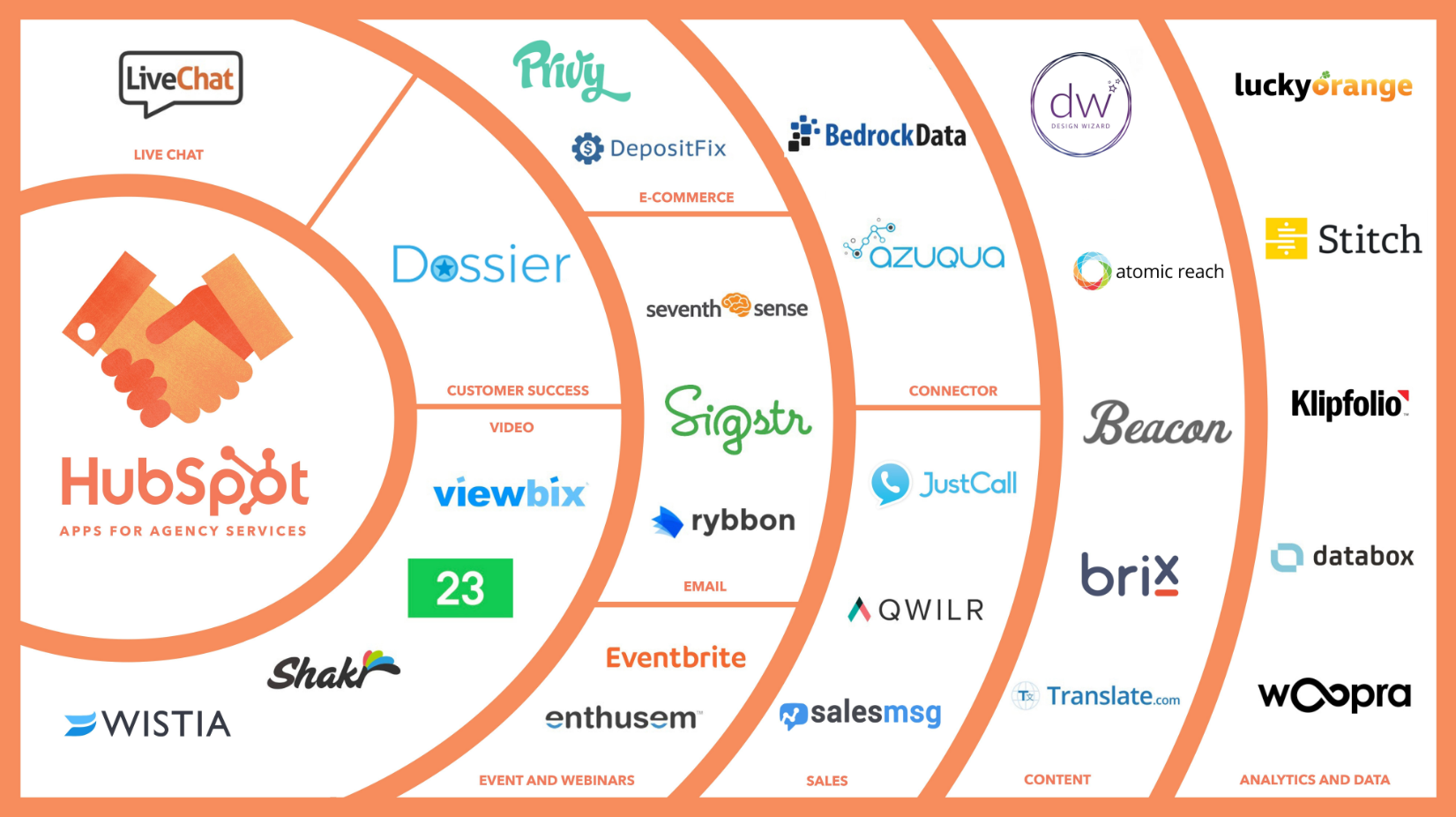
On the other hand, Intercom boasts a large app store with a variety of natively designed applications. While the Intercom app store may be smaller compared to HubSpot's, it offers robust APIs that enable seamless integration with any tool of your choice.
Intercom's focus is on customer communications, and its integrations are designed to provide a comprehensive view of the consumer. This means that you can connect Intercom with various systems to gather a holistic understanding of your customers.

Verdict:
HubSpot offers a stronger and more extensive integration ecosystem, providing seamless connectivity with a wide array of software and systems.
HubSpot Service Hub vs. Intercom: Reporting
HubSpot provides a wide range of reporting options, including customizable dashboards and custom reports. Users have the flexibility to create reports and dashboards tailored to their specific needs. With HubSpot, you can monitor and evaluate your data in real time, making informed decisions based on comprehensive analytics.
By integrating your CRM data with marketing, sales, and service information, HubSpot becomes the centralized source of truth for all your data. Additionally, HubSpot allows you to integrate data from other business apps, enabling you to generate sophisticated custom reports that provide valuable insights.

Intercom's reporting capabilities focus on measuring metrics related to customer interactions, response times, and the nature of conversations (e.g., sales, support). This data helps businesses identify trends, identify areas for growth, and make data-driven decisions.
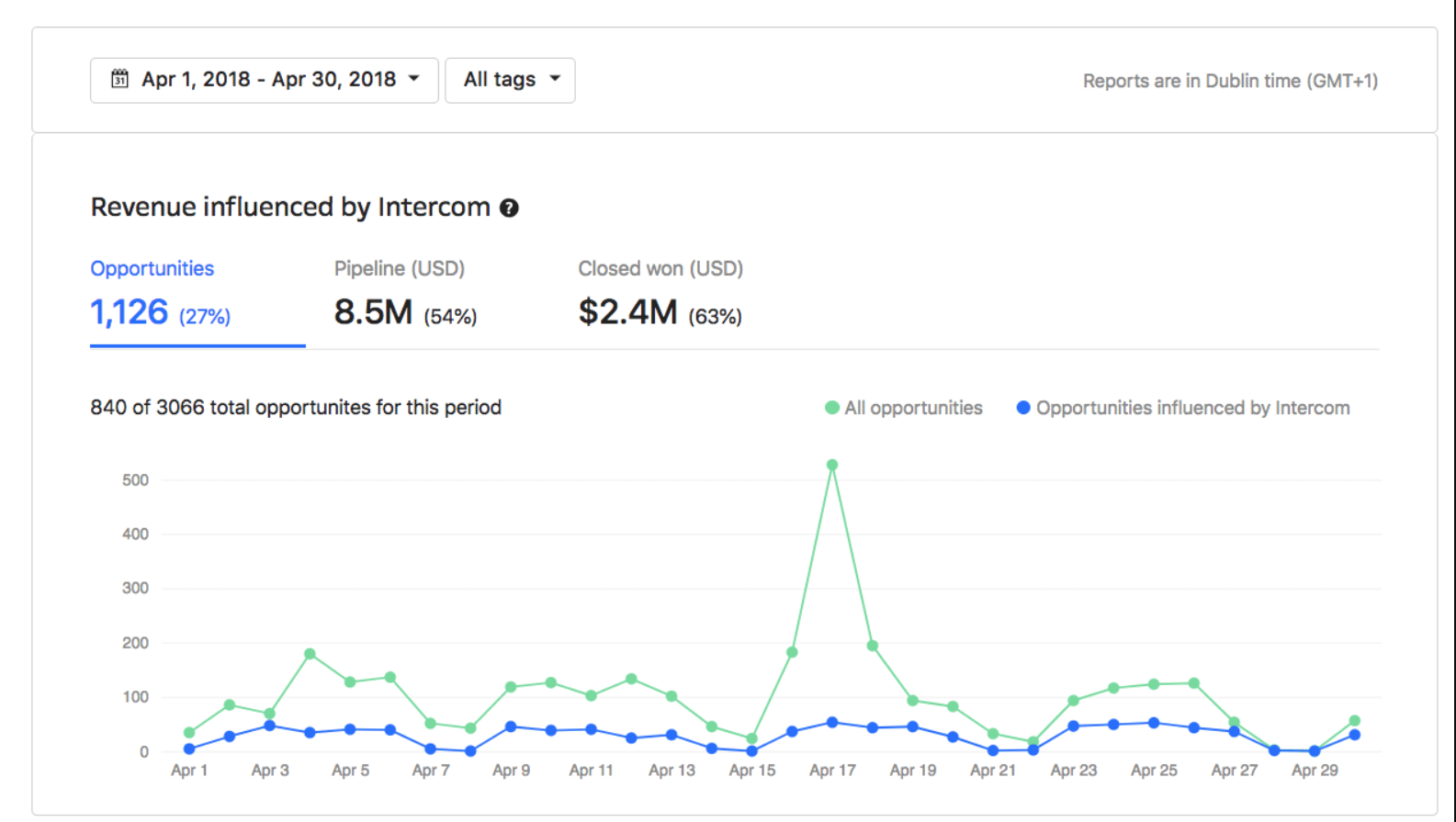
Verdict:
If you prioritize robust and customizable reporting capabilities, HubSpot is the better choice. Its extensive reporting options, customizable dashboards, and integration capabilities provide a comprehensive and insightful view of your data.
HubSpot Service Hub vs. Intercom: Customer Support
HubSpot provides customer support through various channels, depending on your pricing plan. The free plan primarily relies on the HubSpot community, where you can seek assistance from fellow users.
HubSpot's online knowledge base and the Academy offer self-help resources, including a vast library of articles and premium courses for earning credentials. The Starter package includes email and live chat support, while phone support is available with Professional and Enterprise subscriptions.
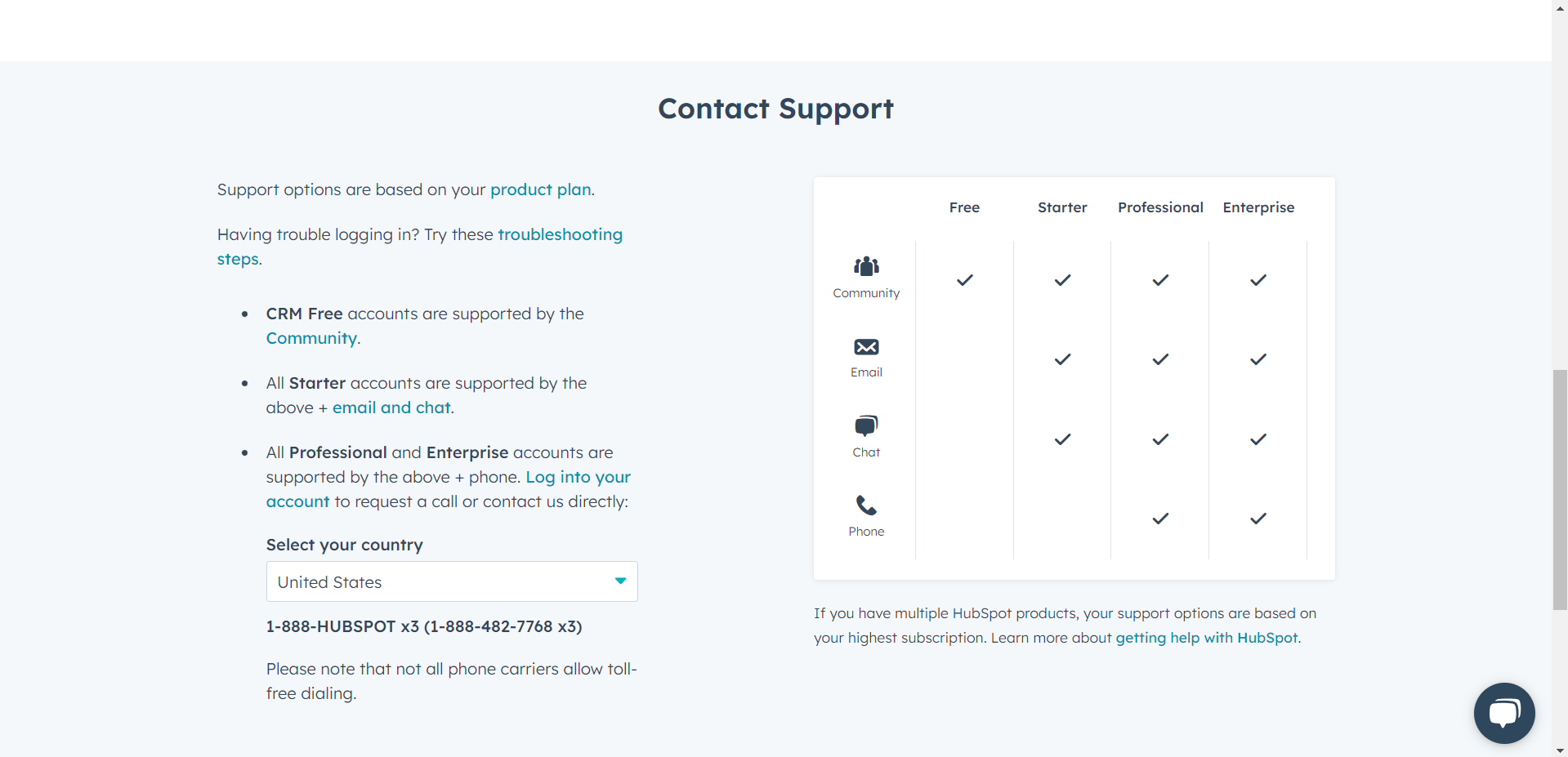
On the other hand, Intercom offers free support to all customers, with additional paid options for more demanding needs. Their Premier Support offers faster response times and escalation options, while Premier Success and Premier Onboarding provide training and education support. However, Intercom's web-based training and documentation cover a more limited range of topics compared to HubSpot.
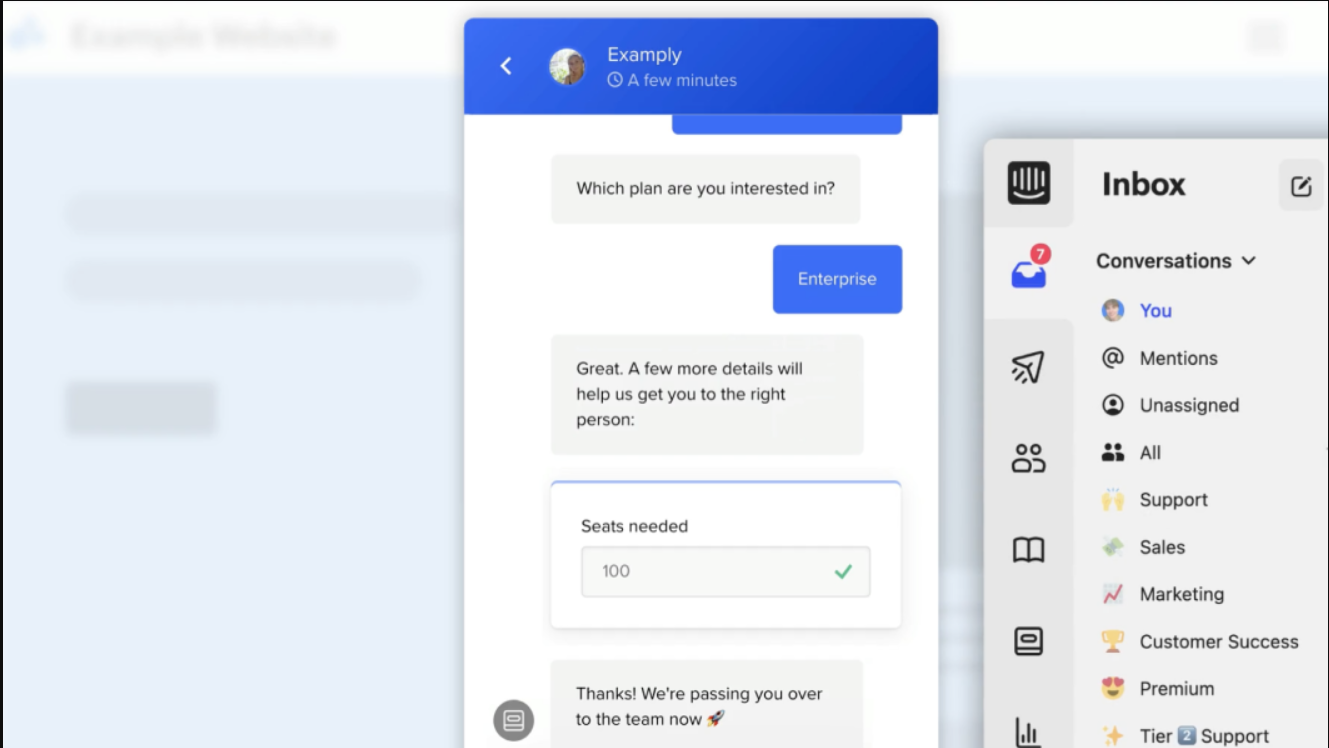
Verdict:
HubSpot's comprehensive support options, including a vibrant community, extensive knowledge base, and different levels of direct support depending on your subscription, provide a more robust and accessible support experience.
Highlights |
HubSpot Service Hub |
Intercom |
|
Support Rating |
8.5/10 |
8.0/10 |
|
Online Training |
9.1/10 |
- |
|
Implementation Rating |
7.3/10 |
6.4/10 |
HubSpot Service Hub is a Leader in Customer Service Software. SoftwareReviews recognized HubSpot Service Hub as a leader and gold medalist in its 2022 Customer Service Management Report based on input from HubSpot users.
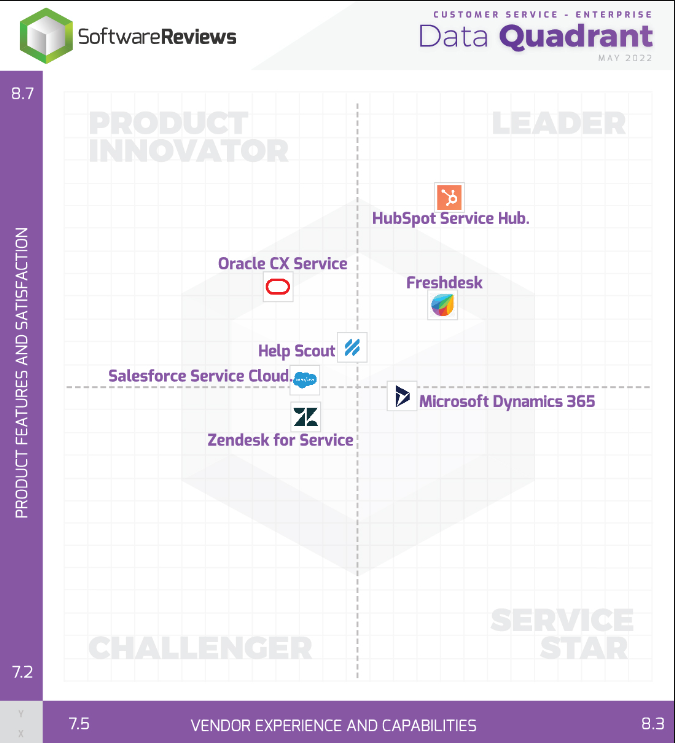
HubSpot Service Hub vs. Intercom: Live Chat Software
HubSpot's live chat feature enables businesses to engage with website visitors in real time. It allows for automatic routing of chats to the appropriate team members, whether it's your customer service team or sales team. Customized greeting messages can be created for different websites or audience segments, and the chat window can be easily customized to match your brand's look and feel.
HubSpot's live chat tool is seamlessly integrated with a chatbot creator, which doesn't require any coding. This enables businesses to create chatbots that can qualify leads, schedule appointments, address common queries, and more.
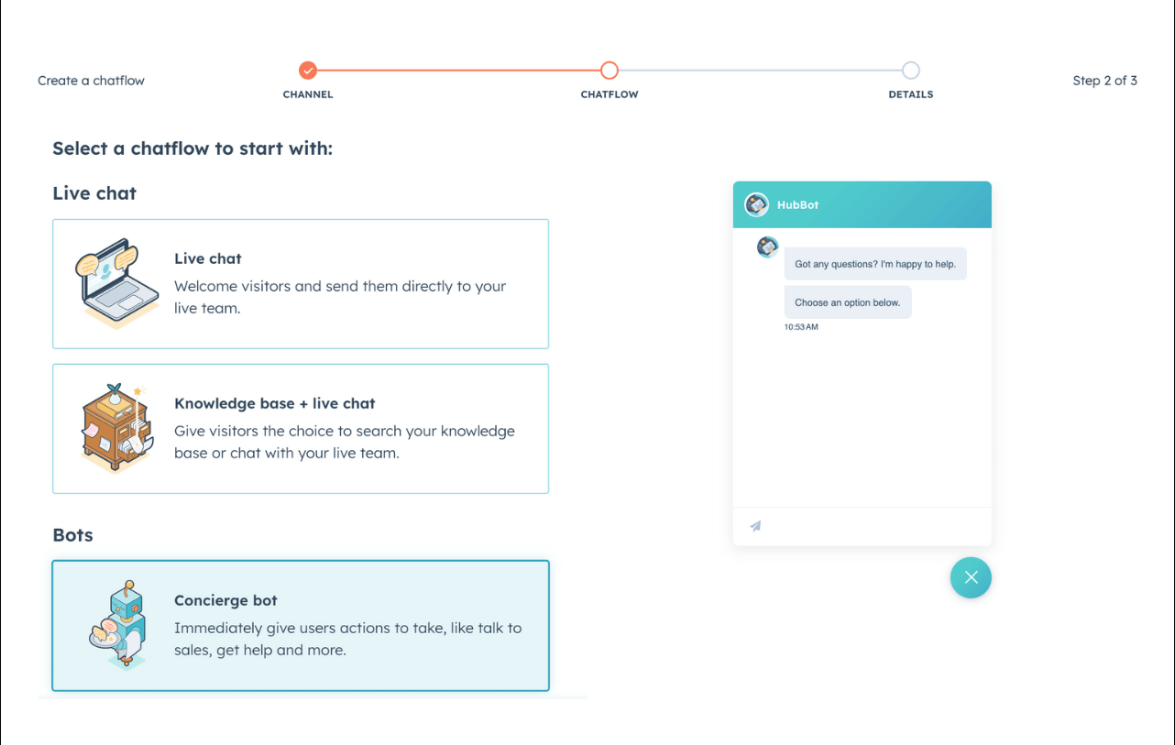
Intercom's live chat allows businesses to interact with customers on their website or mobile app instantly. It facilitates real-time customer inquiries and quick responses from businesses. The chat widget's appearance can be customized to align with the website's style and branding.
Automatic welcome messages and notifications can be programmed to engage customers when they initiate a conversation or when a representative becomes available.

Verdict:
If you're looking for live chat software that offers advanced features and scalability, HubSpot Service Hub is the better choice. Its integration with chatbots and comprehensive customization options provide a superior live chat experience for businesses and customers alike.
|
Highlights |
HubSpot Service Hub |
Intercom |
|
Customization |
8.2/10 |
8.1/10 |
|
Conversation Archiving |
8.8/10 |
8.8/10 |
|
Lead Development |
8.6/10 |
8.3/10 |
|
Team Inbox |
8.9/10 |
8.9/10 |
|
Customer Profiles |
8.9/10 |
8.6/10 |
HubSpot Service Hub vs. Intercom: Knowledge Base
HubSpot's knowledge base software enables businesses to create comprehensive assistance pages, categorize them, and tag them with relevant search keywords. This empowers customers to find answers and solutions on their own, reducing the number of time-consuming inquiries for your support staff.
HubSpot's CRM automatically tracks which articles customers have read, preventing duplicate content from being sent by your team. Additionally, the knowledge base serves as a convenient reference for your support team, allowing them to find solutions to queries they may not know quickly.
Intercom's knowledge base feature allows companies to develop and share articles, FAQs, and other types of content that customers can access through a search box or categorized catalog. The platform focuses on simplicity and user-friendliness, making it easy for businesses to create and update their knowledge base without requiring technical expertise.
Users can easily create help articles by adding titles, content and enhancing visual appeal with built-in editing tools, images, videos, and other media. Code samples can also be included for technical directions or demonstrations.
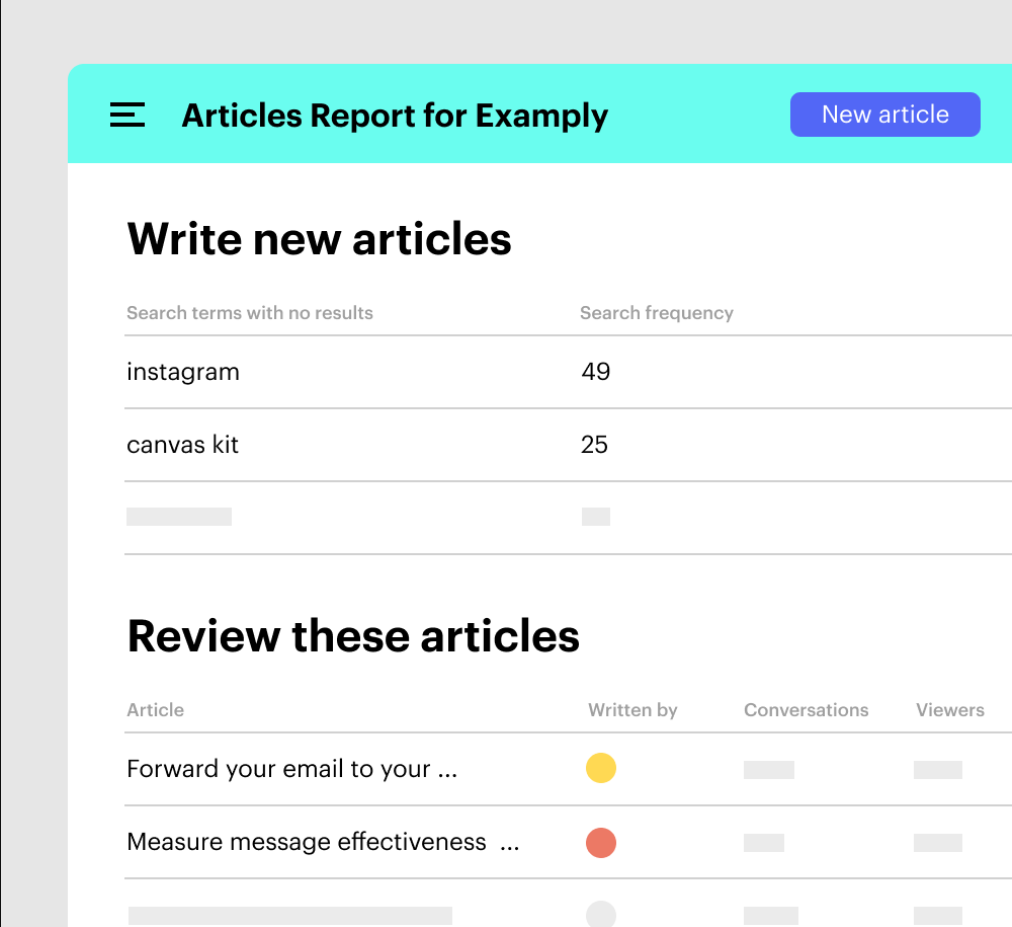
Verdict:
When it comes to determining which knowledge base software is better, HubSpot Service Hub takes the lead. HubSpot's offering provides a robust knowledge base with advanced features like categorization, tagging, knowledge base articles, and automatic tracking. It empowers customers to find answers independently, reducing the workload on your support staff.
HubSpot Service Hub vs. Intercom: Customer Portal
HubSpot Service Hub goes beyond the standard features by providing a dedicated customer portal. This portal gives your clients control over their experience by allowing them to view ticket status updates and previous outcomes. By activating the customer portal, you can ensure that ticket discussions between customers and representatives can continue seamlessly, enabling faster issue resolution.
When integrated with your common inbox, ticket discussions are linked, providing a centralized view for both customers and representatives. HubSpot also offers a ticketing system that allows you to record, organize, and track all customer issues in one interface, accessible to your entire customer support team.
Automation features can be configured to generate reports automatically, saving your representatives from repetitive data entry tasks.
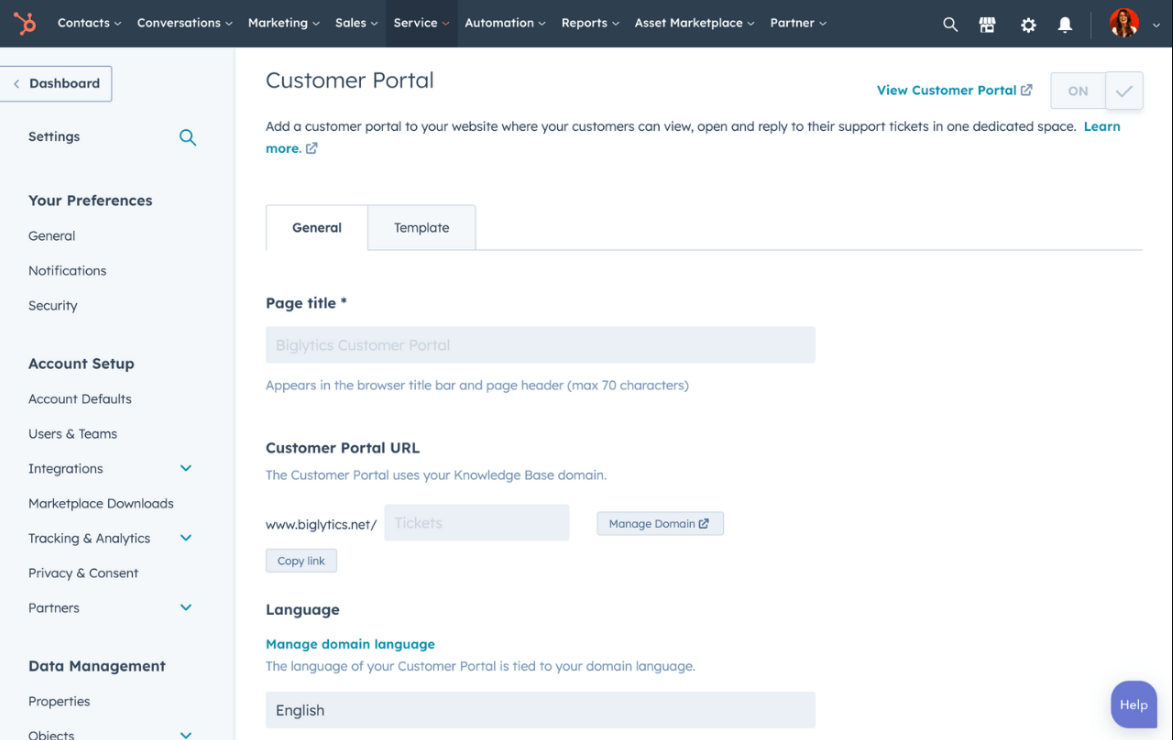
On the other hand, Intercom lacks a built-in customer portal tool. While agents can connect Intercom with third-party ticketing software like Jira and relay information to agents, there is limited visibility on the customer side. This means that customers may not have direct access to a dedicated portal for viewing ticket status or engaging in ongoing discussions.
Verdict:
Now, in terms of determining which platform offers a better customer portal experience, HubSpot Service Hub takes the lead. Its dedicated customer portal, integrated ticketing system, and automation capabilities provide a comprehensive solution for managing customer interactions and providing transparency throughout the support process.
HubSpot Service Hub vs. Intercom: Pricing
HubSpot Service Hub offers a range of plans to cater to different business needs. While there are some useful free tools available, more advanced features are available with the paid plans.
The Service Hub Starter, Professional, and Enterprise plans have their own fees and benefits. With features like interactive chatbots, support reports, and a knowledge base, HubSpot equips you with the necessary resources to deliver exceptional service.
Each plan has its own limitations and advantages, and we'll discuss them to help you determine which one suits your needs best. HubSpot Service Hub offers four options: Free, Starter, Professional, and Enterprise. The Starter package starts at $18/month, Professional at $450/month, and the Enterprise package at $1200/month.
Recommended read: HubSpot Service Hub Pricing: Make the Right Choice for Your Business

Intercom also offers four package sets tailored to different company sizes and requirements. If you're just starting out, the 'Start' ($59/month) or 'Grow' ($119/month) payment options should suffice.
For more established businesses, there are the 'Accelerate' and 'Scale' subscriptions, which range from $499 to $999 per month and include features like 10 seats, custom bots, Salesforce integration, and advanced workflows.

Verdict:
When it comes to determining which platform offers better pricing, it ultimately depends on your specific needs and budget.
Both HubSpot Service Hub and Intercom provide pricing options for different stages of business growth. It's important to evaluate the features and benefits offered by each platform and consider which aligns better with your requirements and financial capabilities.
HubSpot vs Intercom - Determining the Champion of Customer Engagement
When it comes to comparing Intercom vs HubSpot Service Hub across various aspects such as customer engagement, integrations, reporting, customer support, live chat software, knowledge base, and customer portal, we've seen that both platforms have their strengths and limitations.
|
Highlights |
HubSpot Service Hub |
Intercom |
|
Overall |
5.0/5 |
4.7/5 |
|
Ease |
5.0/5 |
4.8/5 |
|
Features |
5.0/5 |
4.7/5 |
|
Design |
5.0/5 |
5.0/5 |
|
Support |
4.0/5 |
4.2/5 |
Ultimately, the choice between HubSpot Service Hub and Intercom depends on your specific business needs, priorities, and budget. If you're seeking a comprehensive CRM solution with advanced reporting, a customer portal, and a wide range of features, HubSpot Service Hub emerges as the stronger contender. On the other hand, if simplicity and ease of use are paramount, Intercom may be a suitable option.
|
HubSpot Service Hub |
Intercom |
|
The HubSpot Service Hub software includes a CRM, a ticketing system, and automatic features. It is designed to help companies enhance customer encounters by providing a consistent, tailored experience across all platforms. |
Intercom is primarily focused on customer messaging and engagement, with a strong emphasis on providing a personalized experience for customers. It offers a range of messaging tools, including live chat, email, and chatbots, and has a knowledge base feature for self-service support. |
|
HubSpot is the superior option if you need sophisticated marketing automation tools. HubSpot offers a variety of features, such as email marketing, social media scheduling, and statistics to assist companies in developing and maintaining strong connections with their customers. |
Intercom's pricing is based on the number of active users and the features needed, making it a good choice for businesses with smaller teams and simpler needs. |
|
HubSpot offers a larger number of integrations overall, making it a better choice for businesses that rely heavily on other tools in their tech stack. |
Intercom also provides integration features with other customer support apps but has less app collections than HubSpot. |
Is HubSpot or Intercom the right Choice?
Ultimately, implementing a robust customer engagement platform will empower your business to provide exceptional service, foster customer loyalty, and drive growth. Whether you prioritize advanced reporting, customizable live chat, a comprehensive knowledge base, or a combination of features, the right CRM platform will serve as a valuable asset in your customer-centric approach.
So, take the time to assess your requirements, explore the features offered by both Intercom and HubSpot, and make an informed decision that aligns with your business objectives. Choosing the right customer engagement platform will enable you to deliver outstanding customer experiences and drive your business forward in today's competitive landscape.
Already made the choice and need help setting up HubSpot for you? Get in touch now!
Related blogs:
HubSpot Alternatives: Which CRM reigns supreme in 2023?
Why switch to HubSpot? Have a look at these in-depth HubSpot reviews
HubSpot vs Keap: Which CRM is right for your small business?
HubSpot vs Act-On: The Battle of Leading Marketing Automation Giants
HubSpot vs Hootsuite: The Battle of the Leading Social Media Titans
Frequently Asked Questions
What is the difference between HubSpot and Intercom?
HubSpot and Intercom serve different purposes in the business world. HubSpot CRM is a comprehensive tool that covers both sales and marketing automation, making it ideal for managing customer relationships and marketing efforts. On the other hand, Intercom is mainly geared towards customer service, with some limited features for sales and marketing automation. So, while HubSpot offers a broader range of capabilities for sales and marketing, Intercom is better suited for those looking to enhance customer support and communication. The choice between them depends on your specific business needs and goals.
Does HubSpot integrate with Intercom?
Yes, HubSpot can integrate with Intercom to make things easier. This integration lets you do several helpful things. You can keep your HubSpot CRM records current automatically. It also allows your sales team to access important HubSpot lead information right from Intercom messages. Plus, you get a full view of a prospect's journey with a unified timeline that automatically keeps track of conversations and activities. This integration can streamline your processes and help you provide better service to your customers.
Can you use Intercom as a CRM?
Intercom can serve as a valuable CRM tool, especially for small startups. It offers a more streamlined approach compared to robust CRM systems like Salesforce. It's user-friendly and cost-effective, making it a great entry point for managing customer relationships. While it may not have all the advanced features of larger CRMs, it excels in simplifying customer communication, lead tracking, and support. So, for small startups seeking an efficient and budget-friendly CRM solution, Intercom can be a smart choice to kickstart their customer relationship management efforts.
Which CRM is best to integrate with intercom?
When it comes to connecting Intercom with a CRM, several options stand out. Teamgate, NutShell, HubSpot, Pipedrive, and Pipeliner are some of the top choices. These CRMs seamlessly integrate with Intercom, allowing businesses to enhance customer communication, tailor messages, boost conversion rates, and offer real-time support. By choosing the right CRM that aligns with your company's needs, you can streamline your customer relationship management and foster more productive interactions with your clients.
